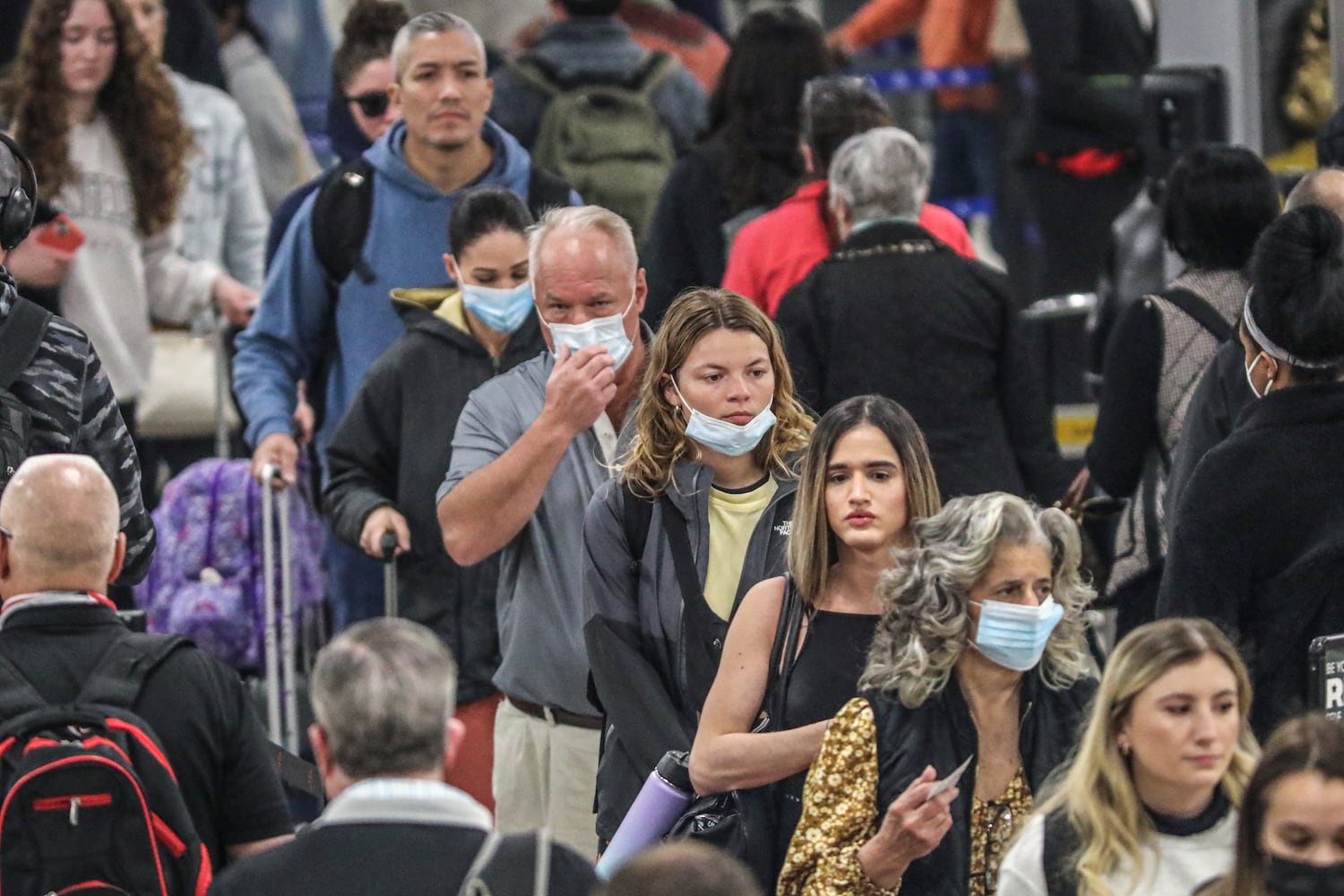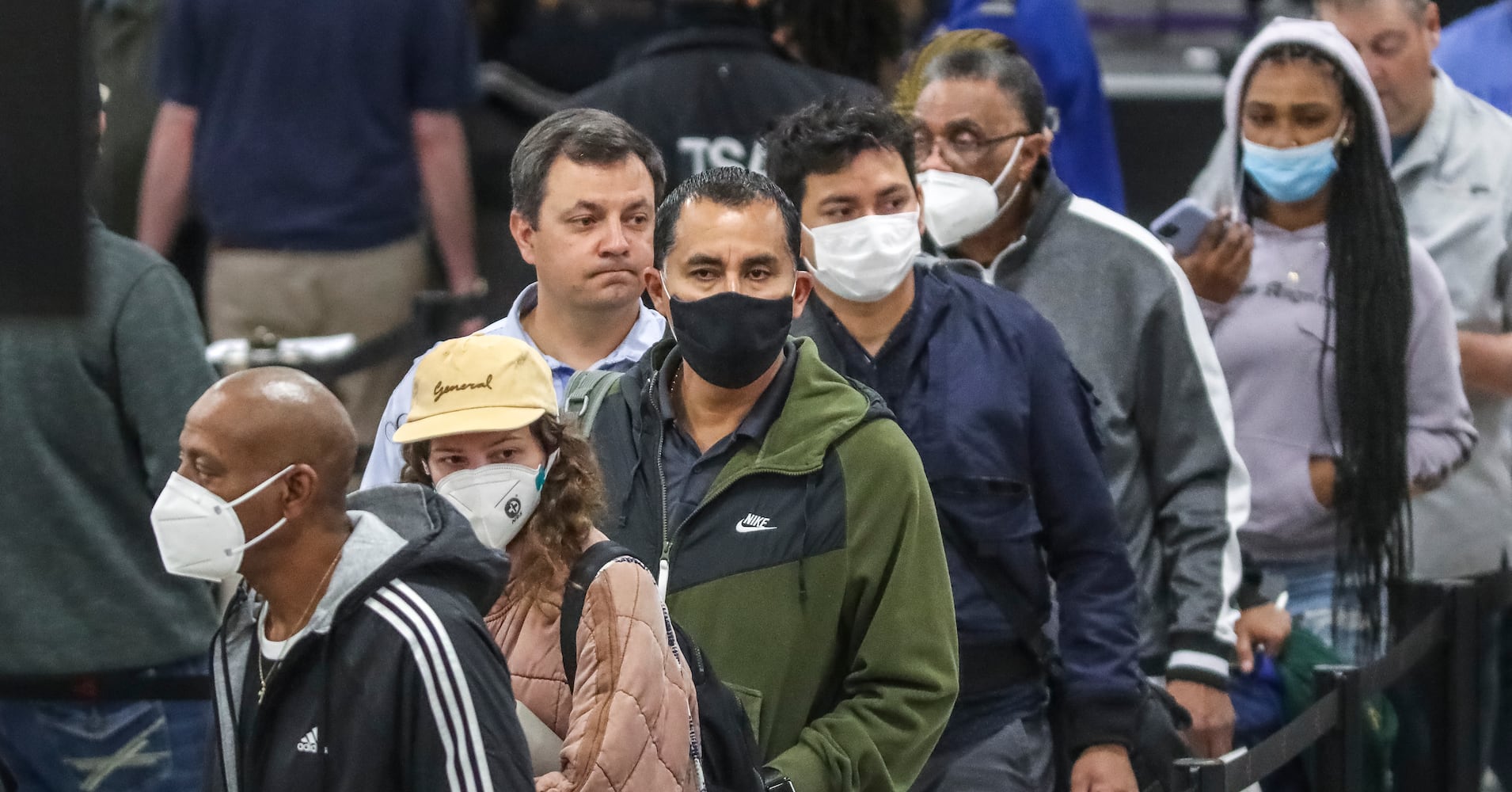Editor’s note: Updated with new comment from Delta Air Lines.
Delta Air Lines sparked backlash late Monday for calling COVID-19 an “ordinary seasonal virus” as it stopped requiring masks on flights following a federal judge’s ruling voiding the federal mask mandate for transportation.
The Centers for Disease Control and Prevention has not yet declared an end to the pandemic, though the top officer of the Atlanta-based agency has said the virus is likely to become seasonal. And the World Health Organization last week said COVID-19 is still a global health emergency.
In a press release Monday night announcing its new mask-optional policy, Delta said it was “relieved to see the U.S. mask mandate lift to facilitate global travel as COVID-19 has transitioned to an ordinary seasonal virus.”
White House assistant press secretary Kevin Munoz tweeted a retort to Delta countering the characterization.
By Tuesday morning, after a flurry of criticism, Delta changed course and instead referred to it as “a more manageable respiratory virus.”
“We are relieved to see the U.S. mask mandate lift to facilitate global travel as COVID-19 transitions to a more manageable respiratory virus – with better treatments, vaccines and other scientific measures to prevent serious illness,” the airline’s amended statement said.
It was not the first time Delta has referred to COVID-19 as a seasonal.
Last week, Delta CEO Ed Bastian labeled it as such while discussing the company’s financial results.
Dr. Henry Ting, Delta’s chief health officer who joined the airline from the Mayo Clinic, said last November before the omicron surge that “we’re coming down from the surge and entering an endemic stage,” Business Travel News reported. He added then that “we will see this become a seasonal respiratory virus.”
In late March, Ting said at a CNBC event that a transition was occurring from “a global pandemic to a seasonal respiratory virus.”
Public health officials have said the virus is likely to become endemic, such as seasonal flus.
CDC director Rochelle Walensky said last month “I do anticipate that this is probably going to be a seasonal virus,” NBC News reported. However, Walensky did not say COVID-19 had already become a seasonal virus.
Still, last winter’s omicron wave, which was highly infectious, but produced a lower overall percentage of severe disease, pushed U.S. hospitals to the brink and triggered a fifth wave of death.
Anti-viral treatments now exist, though access remains a challenge. Much of the world, meanwhile, has yet to gain access to vaccines and shots have yet to be authorized in the U.S. for children under age 5.
The virus has shown the ability to adapt to immune defenses from past infection and vaccination. Still, public health experts say data show the full course of the U.S. approved and authorized vaccines decrease the risk of infection and are highly effective at preventing severe disease and death.
Delta’s decision to call it a seasonal virus prompted criticism from some health experts.
While Delta took a lead role early in the pandemic in rolling out COVID-19 policies including blocking middle seats, requiring masks and cleaning planes, it has since ended many of its earlier COVID practices and pushed for a rollback of mask mandates and COVID testing before international flights.
Some of the previous COVID-19 policies were aimed at convincing travelers it was safe to fly, as Delta sought to recover from the effects of the pandemic.
Passenger levels have rebounded to more than 2 million people passing through airport security checkpoints nationally on many days.
Delta president Glen Hauenstein said last week that “everything we see right now points to a very, very robust travel through the remainder of spring and summer.”
About the Author
The Latest
Featured



